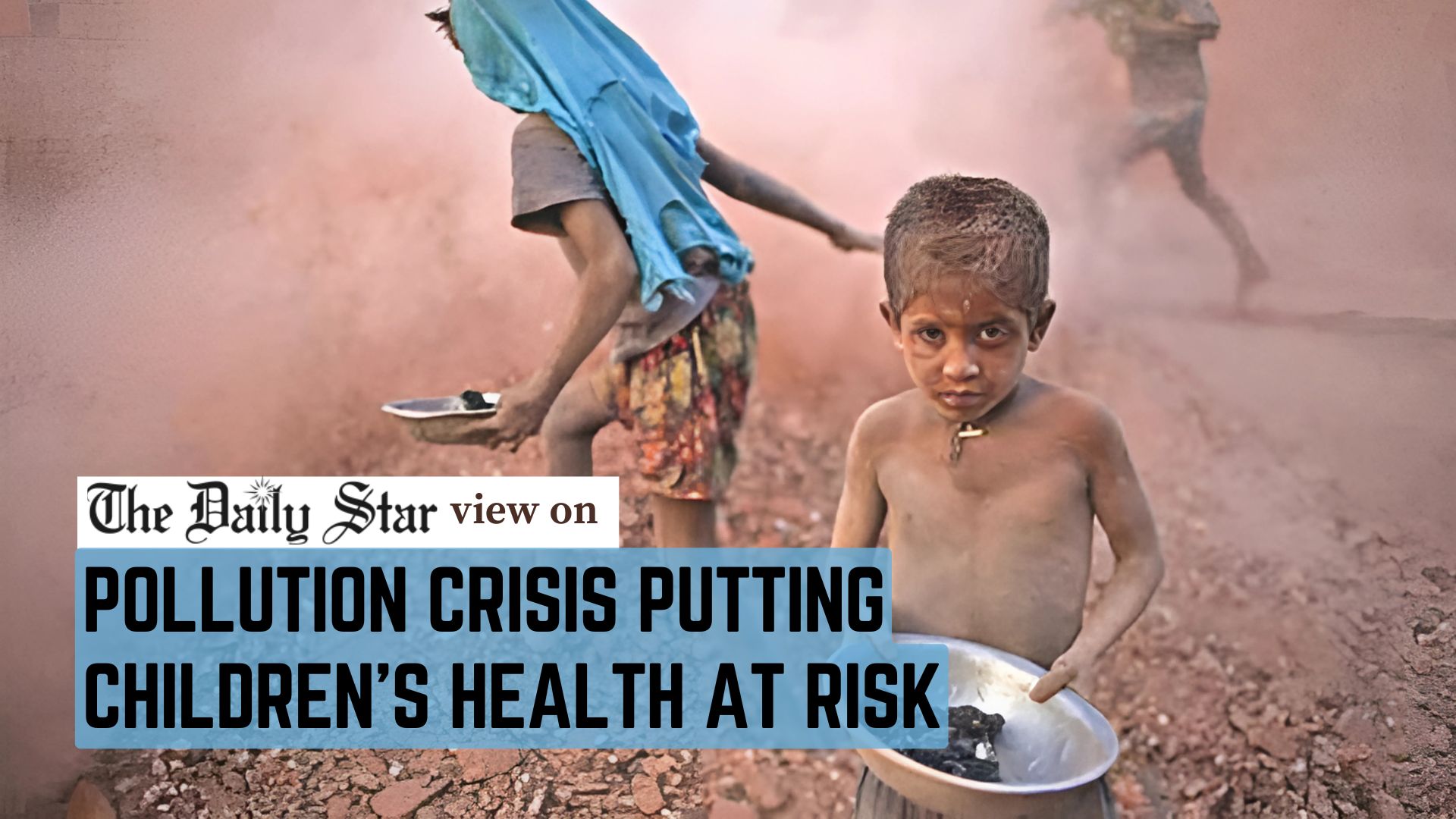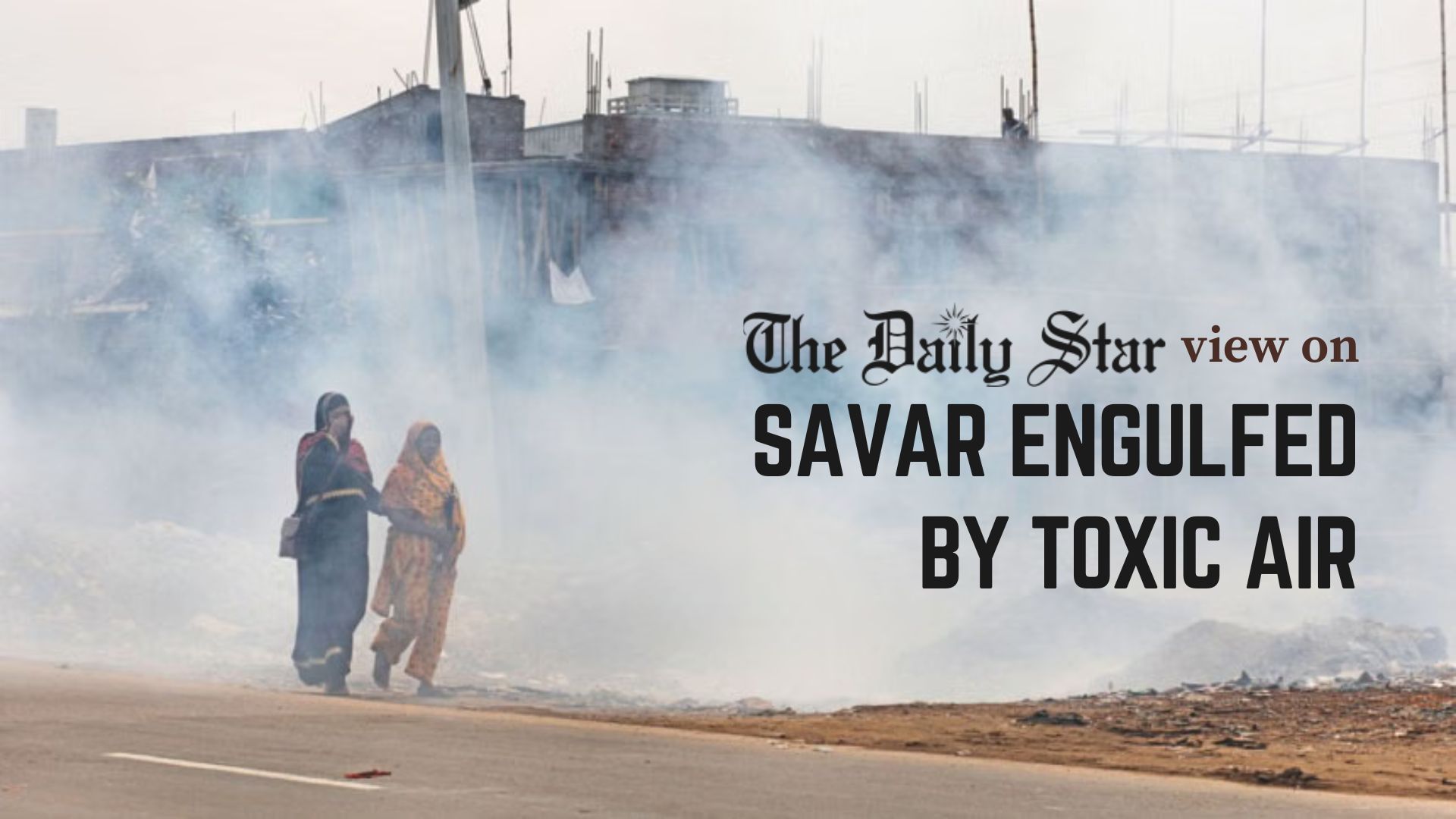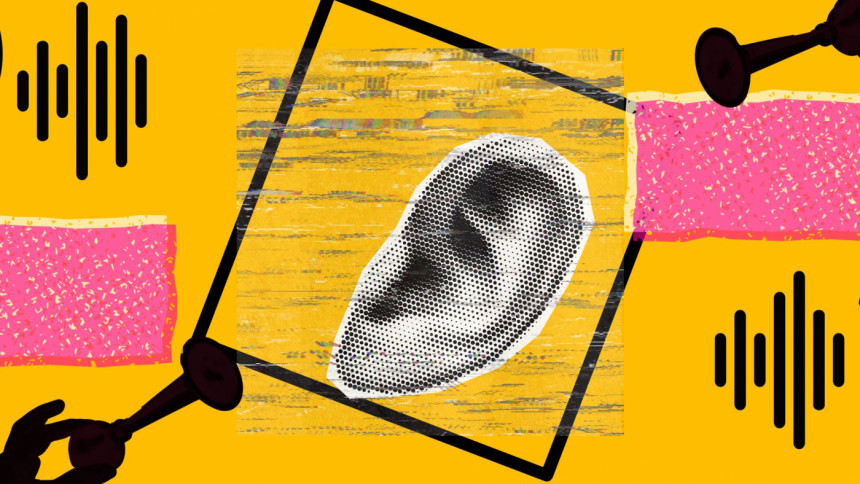A silent genocide by pollution

The new handbook on children's health and the environment, published recently by the Directorate General of Medical Education (DGME) in collaboration with Unicef, offers a harrowing tale of an invisible killer that is hidden in plain sight. Touted as the most polluted country in the world in 2023, with the unenviable reputation of its capital being the second most polluted city globally for four straight years, Bangladesh saw 235,000 deaths, including 19,000 children under age five, in 2021. The tally does not even consider the quieter casualties: premature birth and pneumonia because of the pollutants which a child is born into, as well as autism, ADHD, and childhood leukaemia related to PM2.5 exposure.
Have you ever wondered why many households have nebulisers and why children are calling in sick more than ever? Every cough has an economic cost. The health sector thrives on the sick without any remorse. They make money as our children are forced to take medicines and supplements instead of food. They make money when aggressive medical interventions are administered. Conversely, pollution, responsible for many of these illnesses, is more than a health crisis. It is an economic time bomb. Sick children become less productive adults. Cognitive impairment from lead and PM2.5 exposure lowers learning outcomes, reducing lifetime earnings and workforce capacity. Repeated respiratory illness keeps parents away from work.
According to the World Bank, air pollution alone shaves off around three or four percent off of Bangladesh's GDP annually through lost productivity and healthcare costs. Crores of taka thus literally vanish in thin air. The impact of pollution on our children needs immediate attention from those who have come to power in a movement powered by the youth and sacrifices made by many children. It is a time when the NGO/GO divide is at its thinnest in our known history to make pollution a top priority. So next time when we talk about Zero Carbon, we must take responsibility for some of the imported poison responsible for turning our country into an environmentally hazardous one. The crisis is far deeper than pouring water from a glass jug, ignoring the plastic jars in which the water was brought into the venue.
Let us consider the imported toxicity disguised as industrialisation. We have opened our borders to industries that other nations have shut down for poisoning their people: tanneries, ship-breaking, toxic dyeing units, lead smelters, and informal e-waste recyclers. We allow plastics below global safety grades to be produced and then see the fashionable rejection of bottles by our leaders in public events. We flood our markets with microbeads and single-use toxins, and we consume processed foods laced with harmful preservatives and artificial colours. What rich countries discarded, we embraced in the name of development.
Lone magistrates raid the markets with their entourage of the media and police to get some cookie points. Little do we care when small children rummage through garbage to sift the recyclable materials. They handle old batteries and e-waste. A Buet study estimates an annual generation of 28.1 lakh tonnes of e-waste in the country, which is projected to reach 46.2 lakh tonnes by 2035. The street children, adoringly dubbed as Tokai (ragpickers) by cartoonist Ranabi, are engaged in dismantling the carcasses of other people's progress. Lead joins the rank of air to become another silent killer of our children. Unicef tells us over 3.5 crore Bangladeshi children have high blood lead levels, impacting their intelligence and emotional health. Every day, our children dance with disasters.
And who do you think is offering the dance beats? Our capital is a huge boombox where the average sound levels reach 119 dB, more than double the 55-dB limit advised by WHO. Seventy-five percent of that comes from traffic. Vehicles of our bosses and rulers are decorated with hydraulic horns and hooters to separate them from the mere mortals. Our emergency services use them as priority passes even when not required. Our construction works, microphone mania, and not to mention our street rage—all contribute to noise pollution. Experts believe that noise-induced stress raises cortisol, impairs learning, and can even affect foetal development. There will soon be a time when we will all be deaf to the crying of our own children.
As a developing country, we need to build a lot of basic infrastructure. The rapid urbanisation has initiated us into a race towards development. But that race does not have to be louder, dirtier, and faster. What good is a growth model that replaces GDP for oxygen? How beneficial are our bridges and skyscrapers when the next generation remains neurotoxic, asthmatic, or half-deaf? There are many models of "just transition" to progress. Implementing those models requires professional responsibility, integrity, and convictions.
Try to imagine 19,000 coffins in front of the Parliament House. Then do a cost-benefit analysis before you negotiate with the transport syndicate unwilling to retire unfit vehicles, before you convince the real estate moguls to comply with rules related to kilns, before you force factories to implement clean energy transitions. Quit assuming that drinking water from a glass as a public display discourages the use of substandard plastic and dyes. And how difficult is it to deploy community policing to create noise-safe zones around schools? And how about greening the city to reduce both carbon and noise? With so many Formula-1 battery rickshaws in the city, we are so focused on protecting ourselves from physical harm that we often don't think of the e-waste: our discarded batteries, laptops, phones, and other gadgets. Can we expect a system of e-waste recycling from our eco-conscious government?
It is high time we included child health as a measurable indicator in every development project. As Prof Abu Jafor warned in the handbook, around 90 percent of brain development occurs in the first six or seven years of life. Pollute those years, and you pollute the nation's mind. And don't forget the tally of dead children that will stain our conscience forever.
Dr Shamsad Mortuza is professor of English at Dhaka University.
Views expressed in this article are the author's own.
Follow The Daily Star Opinion on Facebook for the latest opinions, commentaries and analyses by experts and professionals. To contribute your article or letter to The Daily Star Opinion, see our guidelines for submission.




 For all latest news, follow The Daily Star's Google News channel.
For all latest news, follow The Daily Star's Google News channel. 


Comments